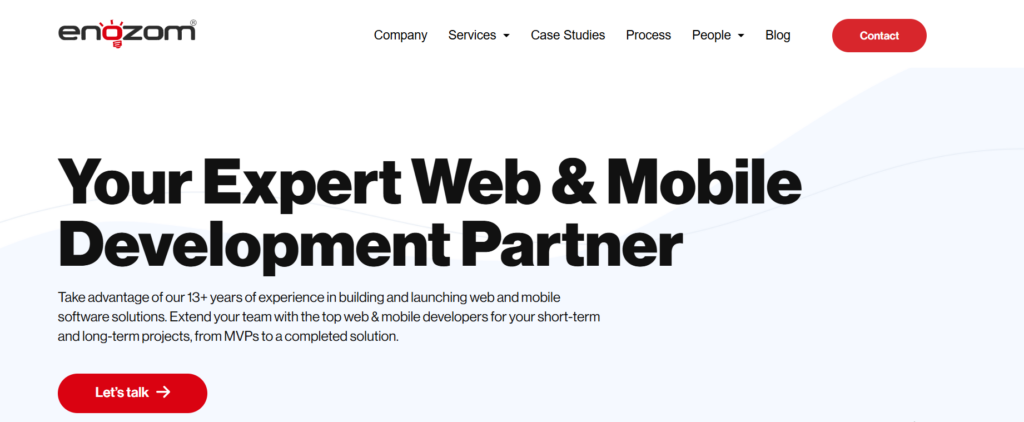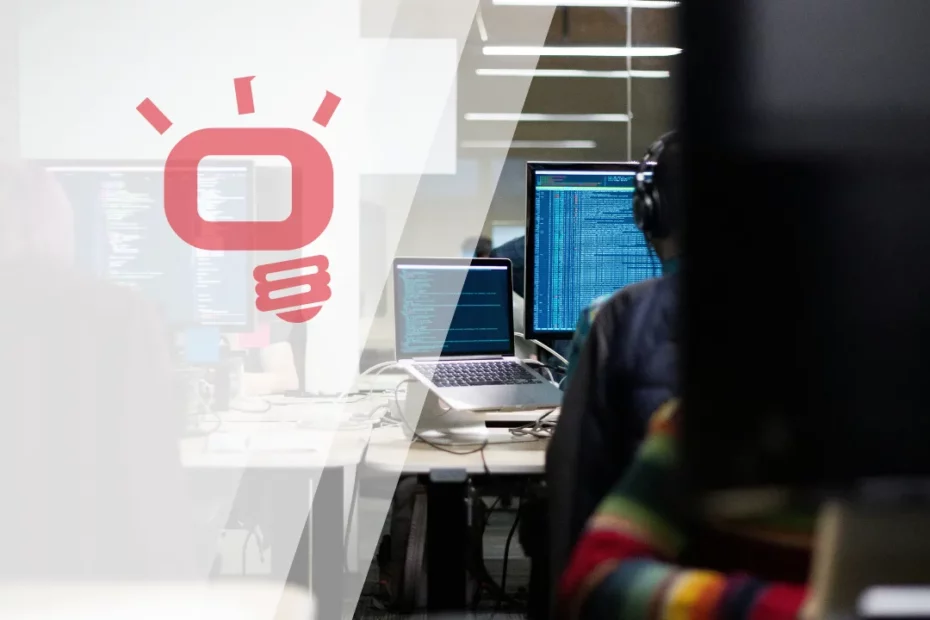New York City is not just a financial capital or cultural icon—it’s a burgeoning hub for digital transformation. The Mobile App Development in New York has matured into a high-stakes, high-reward industry, where technological innovation meets the demands of one of the world’s most dynamic markets. This article explores the mobile development ecosystem in NYC, unpacking the trends, talent, infrastructure, and strategic opportunities that make this city a nucleus for cutting-edge app innovation.
Why New York Is a Mobile App Powerhouse
Diverse Industry Demand
NYC is home to industries as varied as Wall Street finance, Broadway entertainment, cutting-edge fashion, and high-stakes healthcare. This diversity generates complex and varied app development demands. For instance, fintech firms require secure, scalable apps that handle millions of transactions daily, while fashion retailers might seek AR-powered mobile storefronts that offer virtual try-ons. Developers here must build not only functional but also highly specialized and regulation-compliant apps that meet each industry’s unique needs.
Deep Talent Pool and Infrastructure
With top universities like Columbia and NYU feeding the talent pipeline and tech incubators like the Entrepreneurs Roundtable Accelerator (ERA) offering mentorship and seed funding, NYC supports an incredibly robust mobile dev ecosystem. The city fosters collaboration across disciplines—developers, UX/UI designers, data scientists, and digital strategists co-create innovative solutions at a pace that few cities can match.
Startup Momentum and Cultural Synergy
Over the last decade, NYC has closed the gap with Silicon Valley by attracting a new wave of founders who value the city’s density, diversity, and media visibility. Consumer-centric innovation thrives here due to immediate access to a vast, diverse test market. Social media, fintech, and B2C health startups find unique advantages in NYC’s culturally rich environment, which encourages real-time feedback and fast iteration.
Emerging Trends in NYC Mobile App Development
AI and Machine Learning Integration
AI isn’t just a buzzword in NYC—it’s deeply embedded in mobile strategy. From personalized shopping experiences in e-commerce apps to AI-powered scheduling and diagnostics in healthcare, machine learning algorithms are redefining how apps understand and respond to users. NLP-powered chatbots, predictive user behavior analytics, and AI-based fraud detection are standard features for modern NYC-built apps.
The 5G Revolution
New York’s advanced 5G infrastructure allows developers to build data-intensive apps that were previously impractical. 5G enables ultra-low latency, making real-time applications—like multiplayer AR gaming, interactive video streaming, and instant health diagnostics—more seamless. This opens doors for high-performance mobile solutions across sectors, from logistics to entertainment.
AR/VR and Extended Reality (XR)
AR and VR are becoming critical in New York’s high-touch industries. Real estate apps now offer virtual walkthroughs of properties. Museums leverage XR to provide immersive educational content. Retailers integrate AR to simulate product trials. This trend is fueled by NYC’s status as a marketing and media epicenter, where experiences matter as much as functionality.
Cloud-Native Development and Security
As user expectations rise, cloud-native backends provide the scalability and flexibility developers need. Companies are adopting microservices and containerized architectures (e.g., Kubernetes) to ensure performance under variable loads. Alongside scalability, security is paramount. From HIPAA compliance in health apps to SOC 2 standards in enterprise software, NYC developers are building robust, secure environments as foundational pillars—not afterthoughts.
Rise of No-Code and Low-Code Platforms
No-code tools like Unqork and Bubble are changing the development landscape, especially for enterprises and startups seeking rapid deployment. These platforms enable product managers and non-technical founders to build MVPs or even full-scale products without traditional development cycles. For NYC’s fast-moving industries, this reduces time-to-market significantly while lowering development costs
Enozom Software: Nearshore Mobile & Web Development
Enozom Software stands out as a lean, agile, and highly capable digital partner. Founded in 2012 and headquartered in Alexandria, Egypt, Enozom has steadily built a strong reputation for delivering high-quality, scalable software solutions to clients across North America, Europe, and the Middle East.
This article explores what sets Enozom apart, the technical and operational capabilities they bring to the table, and how they’ve positioned themselves as a trusted development partner in a competitive industry.

Full-Cycle Development Expertise
Enozom offers a robust suite of mobile app development services in New York:
Enozom offers a robust suite of development services:
Enozom delivers both native and cross-platform solutions. On the mobile front, they specialize in Swift for iOS and Kotlin for Android, while also supporting hybrid development through frameworks like React Native. Their web applications range from lightweight landing pages to full-scale enterprise portals built with Angular, Vue.js, .NET Core, Laravel, and Node.js.
What distinguishes their approach is the alignment between UI/UX design, frontend development, and backend architecture. Teams collaborate throughout the development lifecycle using Agile methodologies, which means that sprint goals are continuously refined, and product iterations are released quickly.
UI/UX Design
Enozom has an in-house design team that integrates directly with developers. This ensures continuity between prototyping and production. Their UI/UX team doesn’t just focus on aesthetics—they emphasize usability, accessibility, and intuitive navigation. Design deliverables often include high-fidelity Figma prototypes, wireframes, journey maps, and interactive mockups, all built to be responsive and mobile-first.
Quality Assurance
Their QA process goes beyond bug finding. It includes automated and manual testing, functional validation, security audits, regression testing, and performance benchmarking. This multi-layered QA approach ensures that products meet enterprise-grade stability and scale requirements, especially crucial for fintech, SaaS, and healthtech applications.
Team Augmentation & Dedicated Teams
Enozom also functions as a technical partner for companies needing rapid team scaling. Whether embedding a developer into an existing agile squad or assembling a dedicated delivery pod, they provide highly vetted engineers who adapt quickly to clients’ workflows, tools, and communication preferences. This model supports velocity without sacrificing culture or code quality.
Awards, Reviews, and Industry Recognition
Over the past decade, Enozom has consistently ranked among Clutch’s Top Web Developers and B2B service providers in Egypt and MENA. Their client reviews are full of praise for:
Clear and proactive communication
Adherence to timelines and budgets
High technical proficiency
Post-launch support and flexibility
Sites like GoodFirms, DesignRush, and The Manifest have all spotlighted Enozom for its mobile development capabilities, especially in delivering high-value results on mid-sized budgets. This recognition is not merely cosmetic—it reflects a real track record of delivering outcomes and building long-term client trust.
Case Studies That Prove Their Mettle
PassMeFast (UK Driving School Platform)
Enozom helped scale PassMeFast’s web and backend infrastructure, developing tools for students, instructors, and admin operations. Their work included:
API development using Laravel
Frontend enhancements in Angular
AWS Lambda functions for cost-effective scalability
Continuous integration and testing pipelines
What stood out was not just the code quality, but their agile responsiveness. As the client’s team grew, Enozom seamlessly expanded from four to nine dedicated engineers, absorbing evolving requirements without service interruptions.
Day Off (SaaS HR Platform)
This is a cloud-native solution for leave and time-off management, used by thousands of businesses worldwide. Enozom delivered:
A highly intuitive mobile app (native iOS/Android)
A secure .NET backend
A robust Angular web frontend
Scalable architecture on Microsoft Azure
Their QA process included end-to-end user simulations and load testing to ensure performance across a wide user base. The app’s design and responsiveness earned strong user engagement and minimal churn.
Agile Development as a Philosophy
Enozom doesn’t just use Agile frameworks—they live them. Their teams are trained to work in sprint cycles with defined objectives, daily standups, Jira or Trello task boards, and bi-weekly retrospectives. This level of operational maturity means clients benefit from:
Faster time-to-market for MVPs
Predictable delivery cadences
Transparent scope and effort tracking
Flexibility to pivot when priorities shift
This approach is particularly effective for startups and scaleups, where iterative learning and market feedback must translate quickly into product changes.
Why Choose Enozom for Your Project?
Cost-Effective, High-Quality Execution
With hourly rates typically between $20–49, Enozom delivers results comparable to top-tier US or EU agencies at a fraction of the cost. Their sweet spot lies in project budgets from $25,000 to $75,000, though they’ve handled both smaller MVPs and larger enterprise systems.
Cultural and Technical Compatibility
Enozom’s team communicates clearly in English, responds rapidly to feedback, and is comfortable with tools like Slack, Teams, GitHub, and Bitbucket. Their ability to integrate seamlessly into Western workflows and time zones is a huge advantage for distributed teams.
Proven Across Industries
Whether it’s fintech, e-learning, digital health, logistics, or B2B SaaS, Enozom brings cross-domain expertise and a clear understanding of sector-specific compliance needs. They’re equally at home integrating Stripe APIs for subscription billing or implementing HIPAA-compliant data encryption.
📌 Frequently Asked Questions (FAQ) – Mobile App Development in New York
1. How much does mobile app development cost in New York?
Costs in New York vary widely based on the app’s complexity, features, and platform. On average:
Basic MVP apps: $40,000–$75,000
Medium complexity (e.g., payment integration, real-time features): $75,000–$150,000
Advanced or enterprise-level apps: $150,000–$300,000+
Hourly rates for developers in NYC range from $100 to $250/hour for top-tier agencies. Budget-conscious clients may consider nearshore or offshore partners for cost savings.
2. How long does it take to develop a mobile app in New York?
Timeline depends on scope and team size. Typical durations include:
Simple app: 3–6 months
Medium complexity app: 6–12 months
Large-scale, enterprise-grade app: 12–24 months or more
Working with experienced NYC-based agencies often shortens timelines due to streamlined workflows, skilled teams, and early MVP launches.
3. What industries in New York are driving demand for mobile app development?
NYC’s diverse economy fuels demand from multiple sectors:
Finance (Fintech) – Secure banking, investment, and trading apps
Healthcare – HIPAA-compliant patient platforms, telemedicine, diagnostics
Retail & E-commerce – Shopping apps, loyalty programs, AR-powered experiences
Real Estate – Listing portals, virtual tours, client-agent communication tools
Media & Entertainment – Streaming platforms, content delivery apps, gamified experiences
Logistics & Delivery – Real-time tracking, fleet management, B2B dashboards
4. Why should startups choose a New York-based app development company?
Startups in NYC gain several advantages:
Access to experienced developers familiar with fast-paced MVP development
Exposure to a massive and diverse consumer test market
Potential access to VCs, accelerators, and startup-focused coworking spaces
Higher-quality UX/UI design due to the city’s proximity to media and creative industries
While premium in cost, NYC firms often help startups build more viable, market-fit products faster.
5. How do I choose the right mobile app development company in NYC?
When evaluating NYC agencies, consider:
Portfolio relevance to your industry or app type
Client testimonials and case studies
Technical expertise (native vs cross-platform, backend stack, API integrations)
Communication practices (real-time updates, sprint reports, PM tools)
Cultural and timezone alignment, especially for global clients
Platforms like Clutch, GoodFirms, and DesignRush are excellent for discovering verified agencies with transparent reviews.
6. Are there any hidden costs in mobile app development projects?
Yes—some common hidden or overlooked costs include:
App store registration and fees
Ongoing maintenance, bug fixes, and version updates
Server hosting, cloud storage, and third-party API charges
Marketing, user acquisition, and analytics tools
Security audits and compliance certifications
Ensure your agency outlines these during the planning phase to avoid surprises.
7. Can I hire freelance mobile developers instead of an agency in NYC?
Yes, NYC has a thriving freelance community, but there are trade-offs:
Pros: Lower cost, flexible contracts, niche specialists
Cons: Limited scalability, potential for delays, less structured QA/UX process
For MVPs or prototypes, freelancers may suffice. For long-term projects, agencies offer full-cycle services including design, dev, QA, and post-launch support.
Conclusion
Mobile app development in New York is as dynamic and multifaceted as the city itself. With a confluence of industry diversity, deep technical talent, and a fast-paced entrepreneurial spirit, NYC offers a fertile ground for innovation. Whether you’re a startup aiming to launch the next big consumer app or an enterprise looking to digitize operations, New York’s app development ecosystem delivers world-class solutions across every vertical. From agile studios to established tech firms and global collaborators like Enozom Software, the city provides the tools, talent, and trajectory needed to transform bold ideas into impactful digital products.
